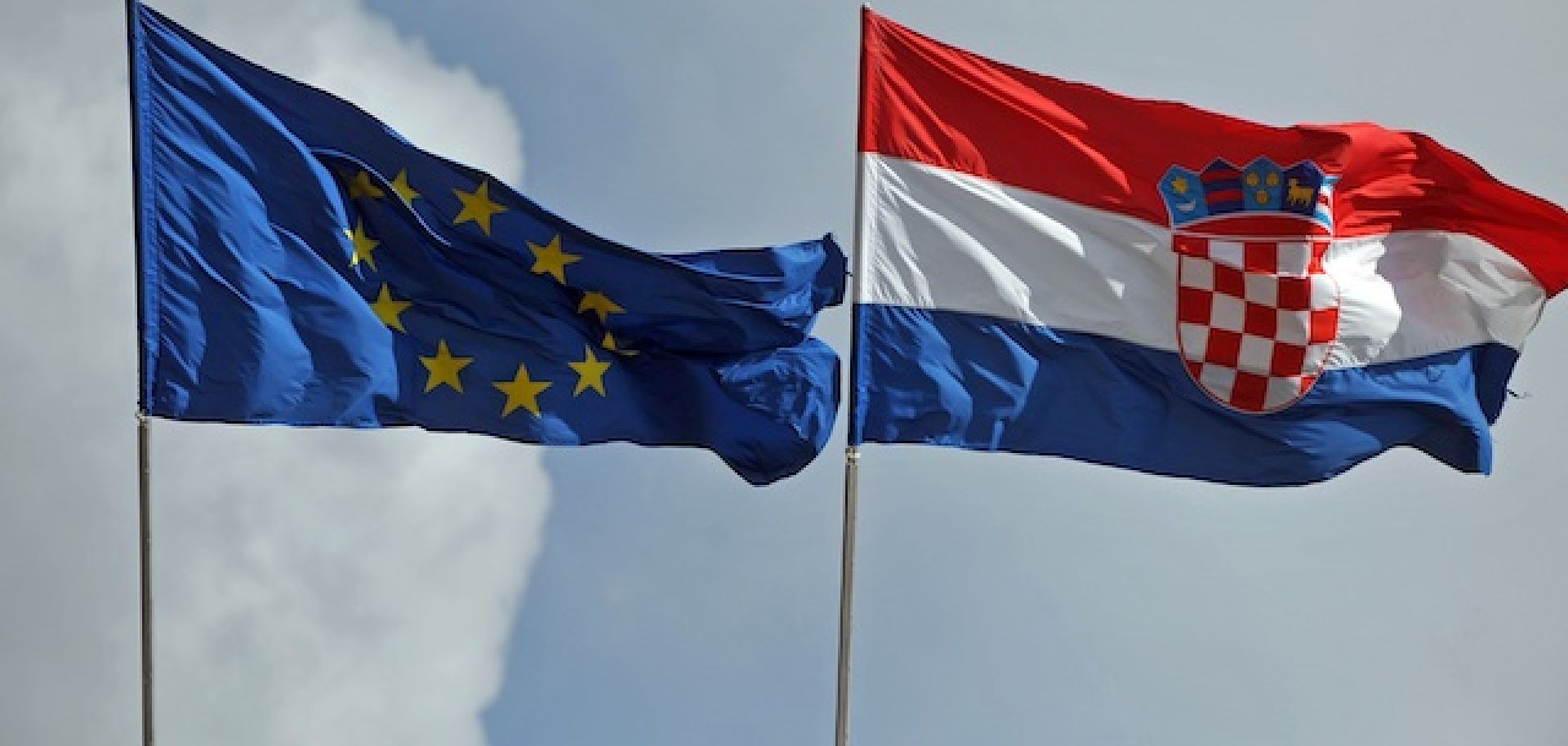ASSESSMENTS
Croatia's EU Membership: A Long Process with Dubious Rewards
Jul 1, 2013 | 10:41 GMT

(ANDREJ ISAKOVIC/AFP/Getty Images)
Summary
For all the problems afflicting the European Union, EU membership remains a priority for many nations, particularly those of the Western Balkans. Croatia, for example, has long courted the bloc for accession, and its efforts were rewarded July 1, when it officially became the European Union's 28th member.
Because of its location in the European borderlands, Croatia traditionally has been influenced politically and economically by external powers, including Austria, Hungary, Italy and Turkey. The country has long been a battleground for Catholicism and Orthodoxy, the Ottoman and Habsburg empires and, more recently, communism and capitalism. After the collapse of Yugoslavia, Croatia adopted a Western orientation, and the country's leaders prioritized NATO and EU membership accordingly. But Croatia joins the bloc in a time of crisis, during which Brussels may not be able to give new members due diligence. The government in Zagreb will have to implement painful reforms to stabilize the country's economy and restore growth with little hope of getting much in return from Europe.
Subscribe Now
SubscribeAlready have an account?
